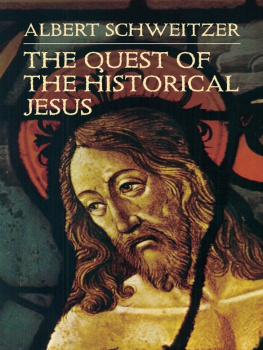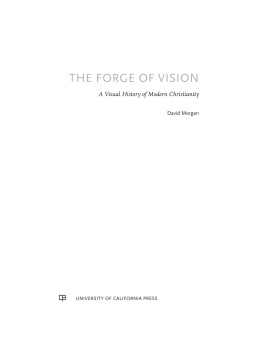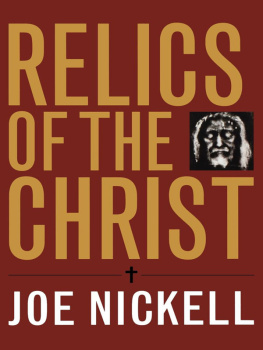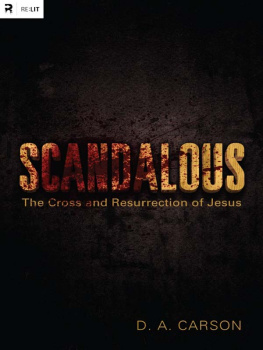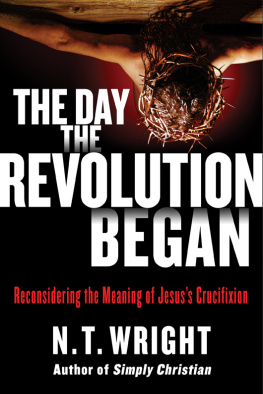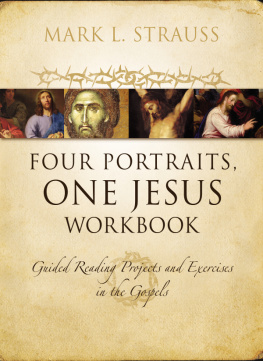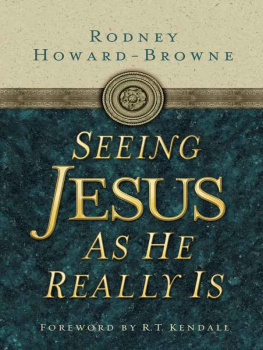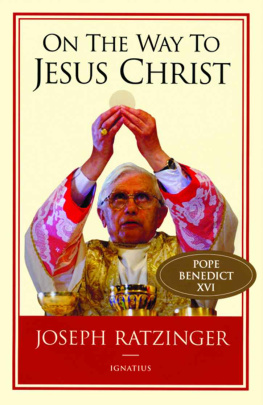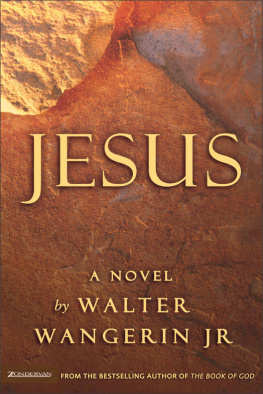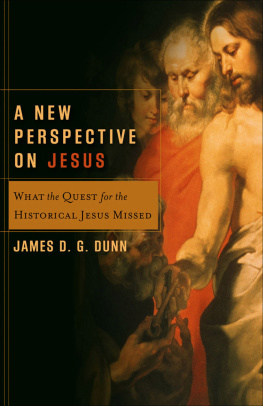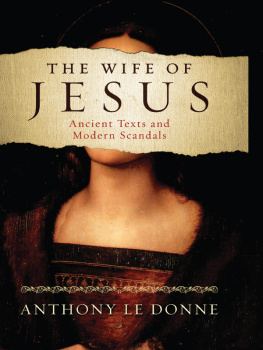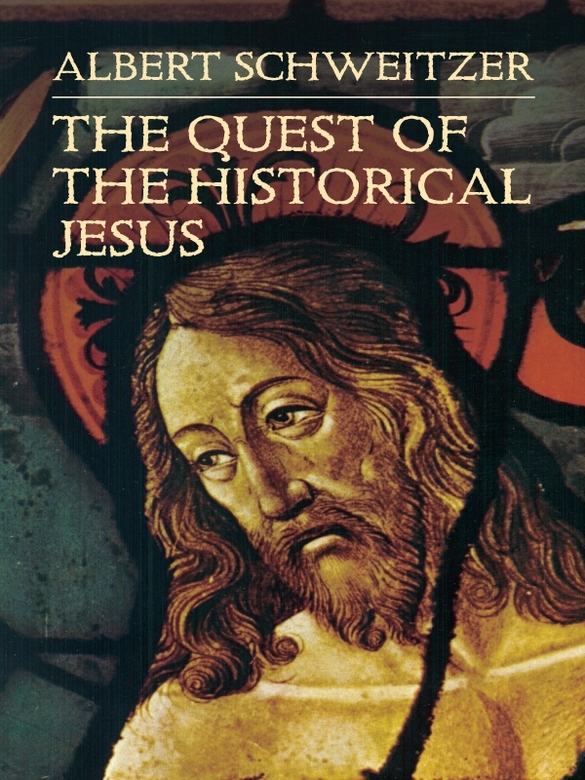I
THE PROBLEM
WHEN, at some future day, our period of civilisation shall lie, closed and completed, before the eyes of later generations, German theology will stand out as a great, a unique phenomenon in the mental and spiritual life of our time. For nowhere save in the German temperament can there be found in the same perfection the living complex of conditions and factorsof philosophic thought, critical acumen, historical insight, and religious feelingwithout which no deep theology is possible.
And the greatest achievement of German theology is the critical investigation of the life of Jesus. What it has accomplished here has laid down the conditions and determined the course of the religious thinking of the future.
In the history of doctrine its work has been negative ; it has, so to speak, cleared the site for a new edifice of religious thought. In describing how the ideas of Jesus were taken possession of by the Greek spirit, it was tracing the growth of that which must necessarily become strange to us, and, as a matter of fact, has become strange to us.
Of its efforts to create a new dogmatic we scarcely need to have the history written ; it is alive within us. It is no doubt interesting to trace how modern thoughts have found their way into the ancient dogmatic system, there to combine with eternal ideas to form new constructions ; it is interesting to penetrate into the mind of the thinker in which this process is at work ; but the real truth of that which here meets us as history we experience within ourselves. As in the monad of Leibnitz the whole universe is reflected, so we intuitively experience within us, even apart from any clear historical knowledge, the successive stages of the progress of modern dogma, from rationalism to Ritschl. This experience is true knowledge, all the truer because we are conscious of the whole as something indefinite, a slow and difficult movement towards a goal which is still shrouded in obscurity. We have not yet arrived at any reconciliation between history and modern thoughtonly between half-way history and half-way thought. What the ultimate goal towards which we are moving will be, what this something is which shall bring new life and new regulative principles to coming centuries, we do not know. We can only dimly divine that it will be the mighty deed of some mighty original genius, whose truth and rightness will be proved by the fact that we, working at our poor half thing, will oppose him might and mainwe who imagine we long for nothing more eagerly than a genius powerful enough to open up with authority a new path for the world, seeing that we cannot succeed in moving it forward along the track which we have so laboriously prepared.
For this reason the history of the critical study of the life of Jesus is of higher intrinsic value than the history of the study of ancient dogma or of the attempts to create a new one. It has to describe the most tremendous thing which the religious consciousness has ever dared and done. In the study of the history of dogma German theology settled its account with the past ; in its attempt to create a new dogmatic, it was endeavouring to keep a place for the religious life in the thought of the present ; in the study of the life of Jesus it was working for the futurein pure faith in the truth, not seeing whereunto it wrought.
Moreover, we are here dealing with the most vital thing in the worlds history. There came a Man to rule over the world; He ruled it for good and for ill, as history testifies; He destroyed the world into which He was born ; the spiritual life of our own time seems like to perish at His hands, for He leads to battle against our thought a host of dead ideas, a ghostly army upon which death has no power, and Himself destroys again the truth and goodness which His Spirit creates in us, so that it cannot rule the world. That He continues, notwithstanding, to reign as the alone Great and alone True in a world of which He denied the continuance, is the prime example of that antithesis between spiritual and natural truth which underlies all life and all events, and in Him emerges into the field of history.
It is only at first sight that the absolute indifference of early Christianity towards the life of the historical Jesus is disconcerting. When Paul, representing those who recognise the signs of the times, did not desire to know Christ after the flesh, that was the first expression of the impulse of self-preservation by which Christianity continued to be guided for centuries. It felt that with the introduction of the historic Jesus into its faith, there would arise something new, something which had not been foreseen in the thoughts of the Master Himself, and that thereby a contradiction would be brought to light, the solution of which would constitute one of the great problems of the world.
Primitive Christianity was therefore right to live wholly in the future with the Christ who was to come, and to preserve of the historic Jesus only detached sayings, a few miracles, His death and resurrection. By abolishing both the world and the historical Jesus it escaped the inner division described above, and remained consistent in its point of view. We, on our part, have reason to be grateful to the early Christians that, in consequence of this attitude they have handed down to us, not biographies of Jesus but only Gospels, and that therefore we possess the Idea and the Person with the minimum of historical and contemporary limitations.
But the world continued to exist, and its continuance brought this one-sided view to an end. The supra-mundane Christ and the historical Jesus of Nazareth had to be brought together into a single personality at once historical and raised above time. That was accomplished by Gnosticism and the Logos Christology. Both, from opposite standpoints, because they were seeking the same goal, agreed in sublimating the historical Jesus into the supra-mundane Idea. The result of this development, which followed on the discrediting of eschatology, was that the historical Jesus was again introduced into the field of view of Christianity, but in such a way that all justification for, and interest in, the investigation of His life and historical personality were done away with.
Greek theology was as indifferent in regard to the historical Jesus who lives concealed in the Gospels as was the early eschatological theology. More than that, it was dangerous to Him ; for it created a new supernatural-historical Gospel, and we may consider it fortunate that the Synoptics were already so firmly established that the Fourth Gospel could not oust them; instead, the Church, as though from the inner necessity of the antitheses which now began to be a constructive element in her thought, was obliged to set up two antithetic Gospels alongside of one another.
When at Chalcedon the West overcame the East, its doctrine of the two natures dissolved the unity of the Person, and thereby cut off the last possibility of a return to the historical Jesus. The self-contradiction was elevated into a law. But the Manhood was so far admitted as to preserve, in appearance, the rights of history. Thus by a deception the formula kept the Life prisoner and prevented the leading spirits of the Reformation from grasping the idea of a return to the historical Jesus.
This dogma had first to be shattered before men could once more go out in quest of the historical Jesus, before they could even grasp the thought of His existence. That the historic Jesus is something different from the Jesus Christ of the doctrine of the Two Natures seems to us now self-evident. We can, at the present day, scarcely imagine the long agony in which the historical view of the life of Jesus came to birth. And even when He was once more recalled to life, He was still, like Lazarus of old, bound hand and foot with grave-clothesthe grave-clothes of the dogma of the Dual Nature. Hase relates, in the preface to his first Life of Jesus (1829), that a worthy old gentleman, hearing of his project, advised him to treat in the first part of the human, in the second of the divine Nature. There was a fine simplicity about that. But does not the simplicity cover a presentiment of the revolution of thought for which the historical method of study was preparing the waya presentiment which those who were engaged in the work did not share in the same measure ? It was fortunate that they did not ; for otherwise how could they have had the courage to go on ?

